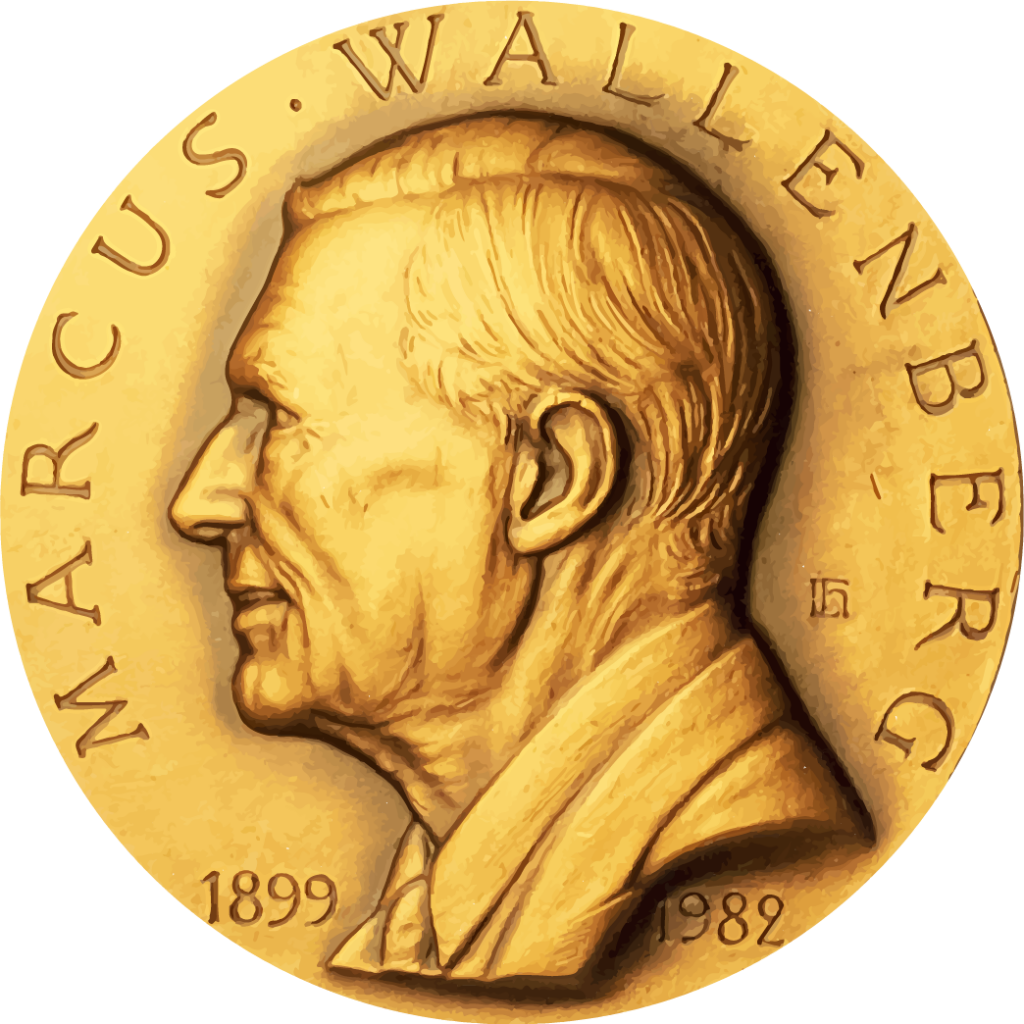Professor Magnus Berggren’s research enables electronics like sensors, displays and antennas to be printed on paper and cardboard, opening up a new, gigantic global market for forest industry products. Today, his pioneering research will be acknowledged when the Swedish King awards him the Marcus Wallenberg Prize in Stockholm.
The best-before date printed on the milk carton you left out on the table changes. A package from the freezer tells you that the content is defrosted. Pick up the muesli packet, and you receive a warning via your mobile phone that it contains nuts. And use a simple, cheap, recyclable strip of paper to check whether your sore throat is caused by bacteria. All of these are examples of how electronics printed on paper can simplify your everyday life in the future.
A new gigantic market for paper
In combination with small batteries and antennas, which can also be printed on paper and cardboard, we will soon be connecting up to a large number of everyday items around us, and communicating with them.
Simple memories and sensors can be printed cheaply, quickly and in large quantities. Market assessors believe that the number of devices that will be connected to the Internet within ten years will be 5-10 trillion, compared with today’s figure of approximately 15 billion. Here Magnus Berggren’s work will generate a major opening for paper and cardboard, with a new huge global market.
Pioneering work acknowledged
Magnus Berggren is being acknowledged for his contributions to fundamental research and a number of applications of electronics on paper. For example, he has developed ion-based electrochemical transistors that work at low voltage and are simple to print on even relatively raw surfaces like paper.
Simple medical diagnosis for home use
Using the same basic technology, Magnus Berggren has also developed organic bioelectronics – components that enable communication between biological systems (ions) and electronics (electrons) – for use in medicine and diagnostics. They can also be used in the home as an aid to health care and, as they are printed on paper, they can be recycled after use.
Magnus Berggren is professor in organic electronics at Linköping University and leads a group of 35 researchers, while also establishing close collaboration with the research institute, Acreo Swedish ICT. Magnus Berggren is involved in 28 patents and has written more than 80 papers and articles presented at research conferences and published in scientific journals, including Science and Nature. Read the entire motivation for the award at www.mwp.org.
Press meeting Sep 23, 13.30, Grand Hotel
Meet Magnus Berggren at the Grand Hotel in Stockholm after the awards ceremony. Accreditation via Kerstin Tordmar, MWP: 010-4680000, kerstin.tordmar@mwp.org
Full motivation
MWP 2014 Award – Full motivation
Press Releases
MWP AWARD 2014 Press release 140922 ENGLISH
MWP Prisutdelning 2014-09-22
Press Pictures






